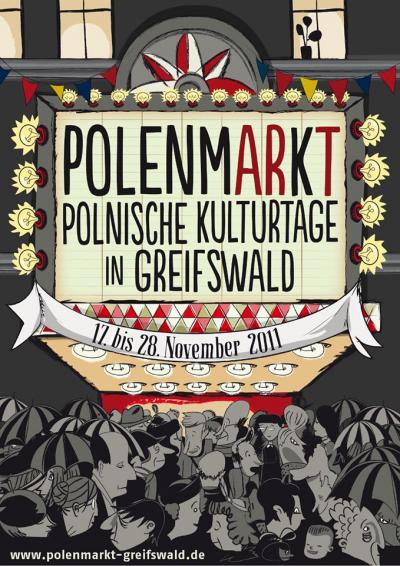The “polenmARkT” Festival in Greifswald

This all began in the second half of the 1990s, when PhD students and students of Slavic Studies got together over a beer after their lectures at the student club “Tschaika”, not far from the main building of the Ernst Moritz Arndt University. Among those present at these get-togethers was Karin Ritthaler, a lecturer in Polish studies who had been working at the university for a year, and who was amazed that in this town that was so close to the Polish border, there was so little contact to the neighbouring country. To remedy this, in 1997 she decided to hold a Polish evening in “Tschaika” with her students. The evening was so successful with such keen interest that Ritthaler spoke to the rector of Greifswald University to suggest the idea of establishing a whole week of events in the town to promote Polish culture. This proposal was approved and in November 1998 the first Polish cultural week was held. A year later, the name “polenmARkT” was established. It was a reference to the cheap bazaars which were popular at the time and which in Germany were generally associated with Poles. The festival organisers used this cliché so that they could challenge it and give it new meaning by inviting the town’s inhabitants to visit a Polish art market.
From the start, the festival was organised by just a few volunteers. But the increasingly impressive programme of the ten-day event with its varied offering soon meant that, despite the great commitment shown by those running the event, a legal framework had to be created to facilitate the financing of the programme. This institutionalisation started when the polenmARkt became an association - “polenmARkT e.V.”. Despite this, every year finding the means to put on the festival is still a demanding responsibility for the event organisers. There is still no long-term financing, and funding applications made to various institutions are not always successful, despite the festival being of some renown. Some foundations pull out of sponsoring once they have been won over because their articles of association state that they should preferably not support recurring events.


















